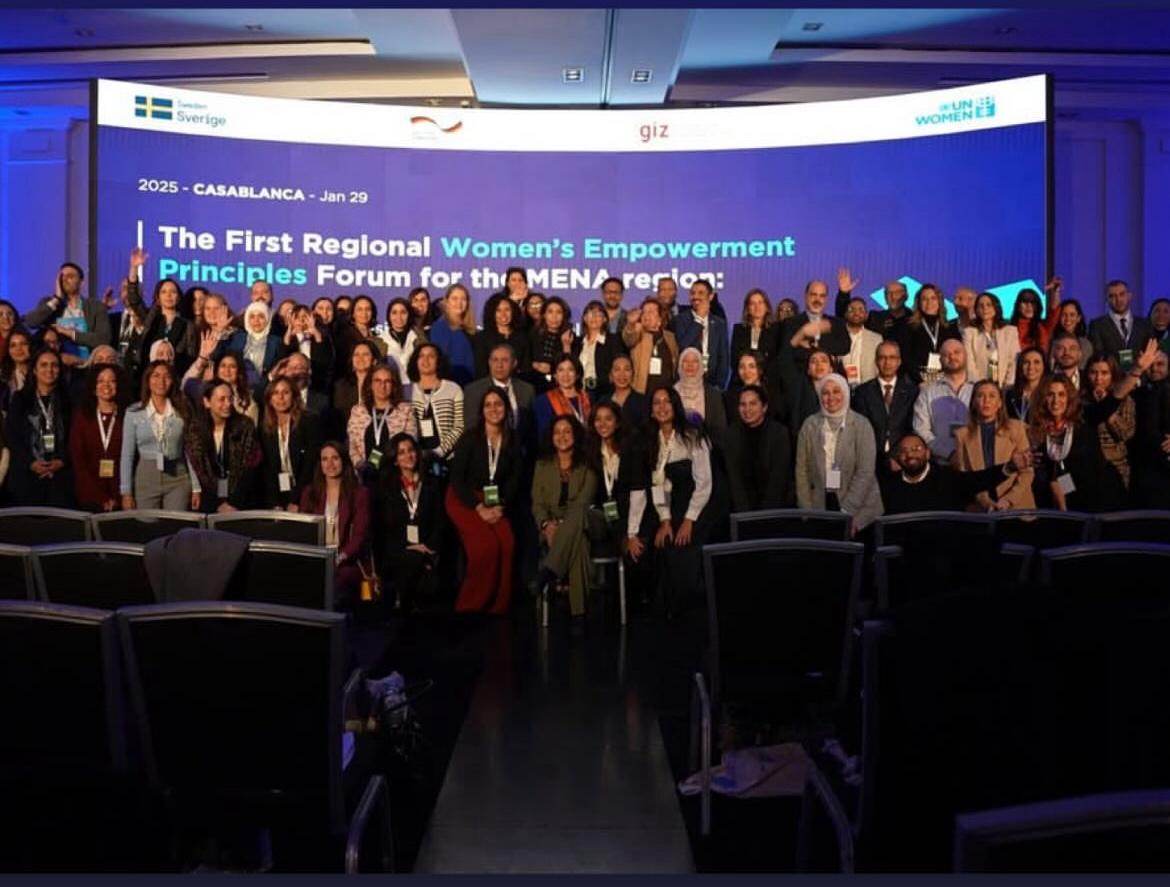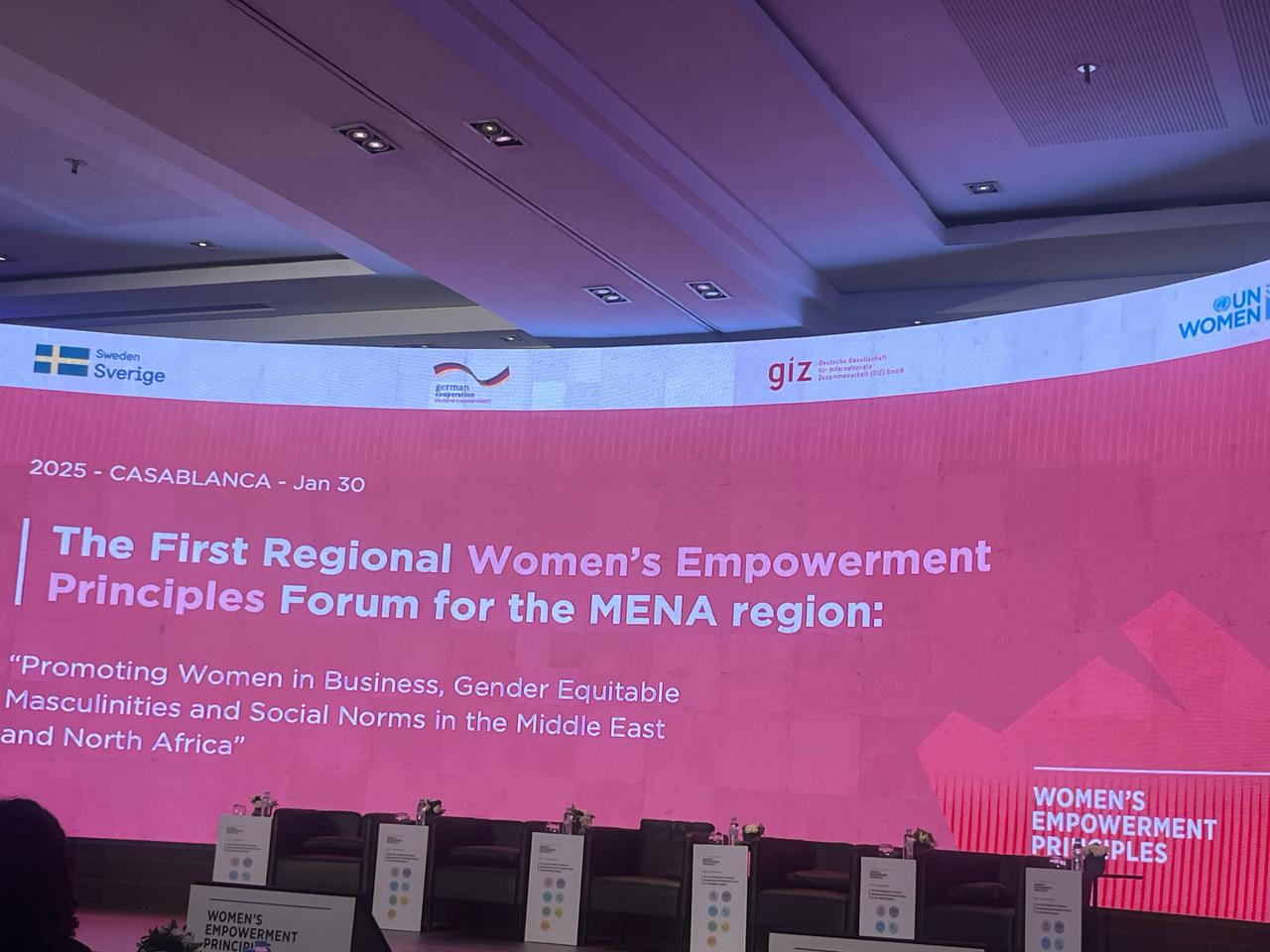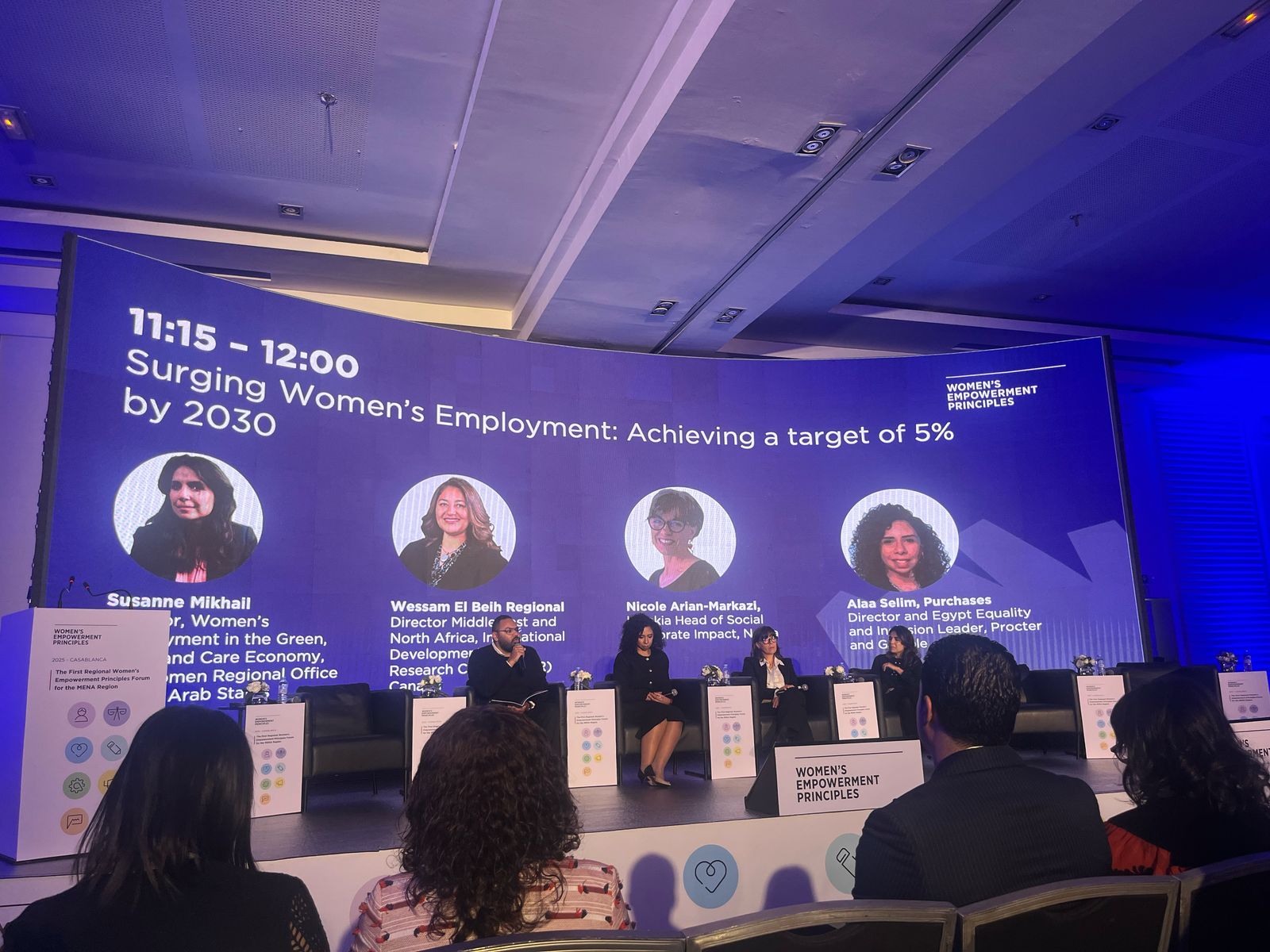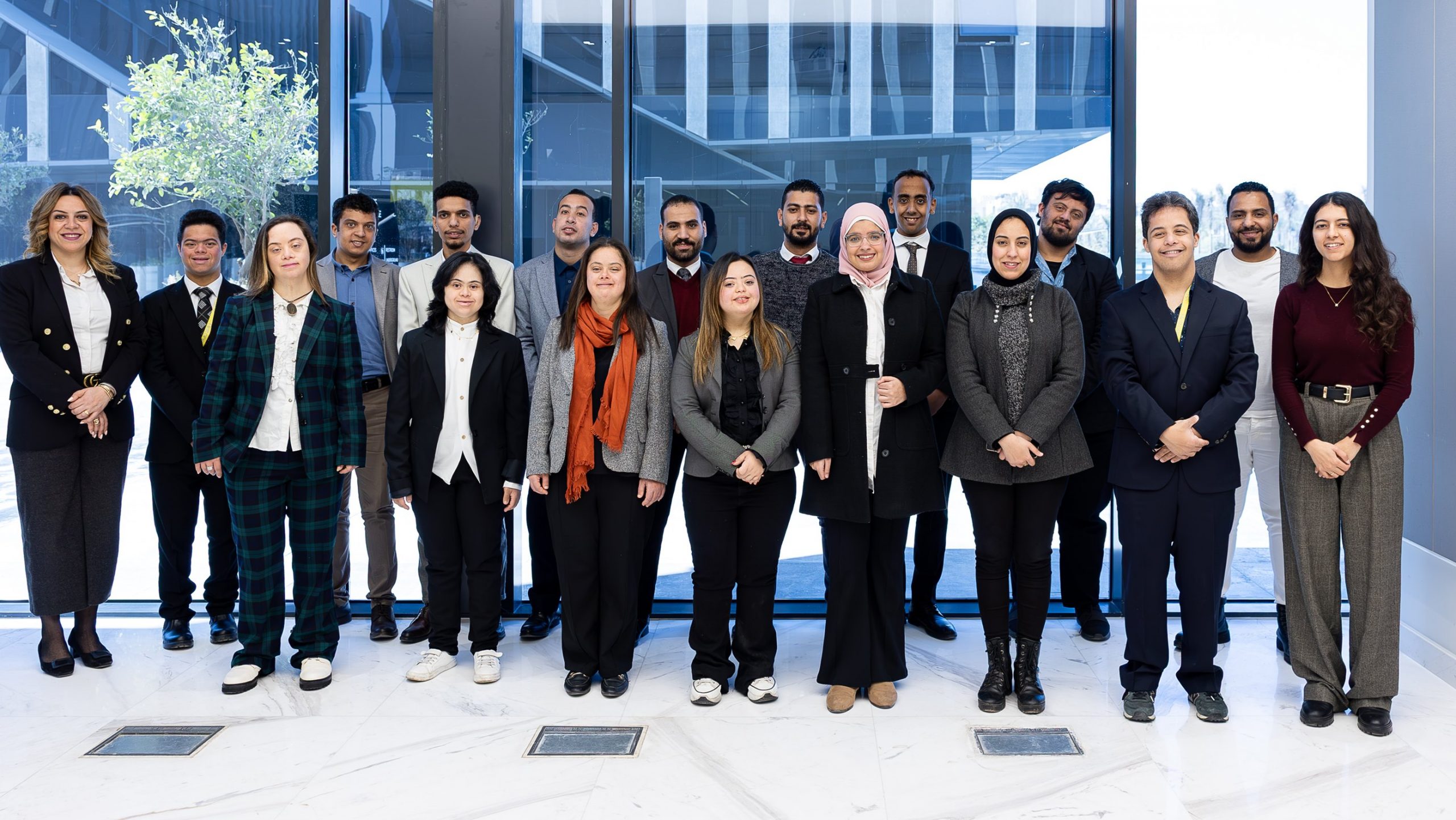
Sustainable Finance?




sustainable finance into business activities?





Team Participates in UN
Women Workshop in
Morocco













Sustainability Message by
Mr. Morcos Salib
Cash CEO
Sustainability Statement

At Cash for Microfinance (CMF), we are deeply committed to advancing sustainability and sustainable finance as core pillars of our mission. Our initiatives are designed to drive financial inclusion, empower communities, and foster a resilient and responsible financial ecosystem.
Through Cash Academy, we have been equipping individuals with essential skills to drive innovation in the microfinance sector, strengthening economic opportunities for underserved communities. Our mobile branches extend financial services to remote areas, breaking down barriers to access and ensuring inclusivity.
Health and well-being remain a priority, and through the SehaCash Medical Card, we have supported thousands of individuals—75% of whom are women—with much-needed medical discounts. In parallel, our commitment to digitalization has enhanced operational efficiency, allowing us to reach more people through MyCash App, social media campaigns, and our digitized operational systems.
Sustainability is embedded in our strategy, and we are proud to align our work with the Sustainable Development Goals (SDGs) by focusing on rural inclusion, responsible consumption, and women’s economic empowerment. We have engaged in collaborations such as the Challenge Fund for Youth Employment, funded by the Netherlands Ministry of Foreign Affairs, expanding access to financial services and creating employment opportunities for underprivileged entrepreneurs.
Additionally, as a signatory of the Women’s Empowerment Principles (WEPs) under UN Women, CMF continues to champion gender equality, transparency, and accountability. Our initiatives reflect our unwavering commitment to building a more inclusive, sustainable, and vibrant economy.
Together, we are shaping a sustainable future for finance—one that empowers individuals, fosters economic growth, and upholds our responsibility to people and the planet.

Embedding and applying ESG factors into business activities
By embracing ESG principles, businesses can not only contribute to addressing critical global challenges—such as climate change, inequality, and corporate transparency—but also enhance their profitability. This approach drives long-term positive change for society and the environment, creating value that extends beyond traditional financial metrics.
Applying sustainable finance means embedding ESG considerations throughout a company’s entire value chain—from investment strategies to daily operations. It involves actions like reducing carbon emissions, adopting renewable energy sources, promoting diversity and inclusion within the workforce, ensuring fair labor practices, and maintaining transparent and accountable governance structures. For instance, companies may shift investments to green technologies or implement policies that prioritize environmental sustainability while optimizing operational efficiency.
What are the benefits behind embedding
sustainable finance into business activities?

Access to More Capital
Institutional and individual investors increasingly seek companies that align with their values and future-focused goals.

A Smart, Strategic Decision
Sustainable finance is not just a moral choice—it positions businesses for success now and in the future.

Foundation for Long-Term Growth
Sustainable finance ensures businesses thrive financially while contributing to a more equitable, resilient, and sustainable world.

Improved Risk Management
By considering ESG risks, businesses are better prepared to face regulatory changes, market shifts, and reputational risks.

Enhanced Reputation
A commitment to sustainability strengthens a company’s image, attracting socially conscious consumers, investors, and partners.
Sustainable Finance is the key to success today and tomorrow!
Beltone Sustainability Team Participates in UN Women Workshop in Morocco
In February, Beltone’s Sustainability Department took part in a significant workshop organized by UN Women in Morocco, bringing together experts, corporate leaders, and policymakers to explore the intersection of gender equality and sustainability.
The workshop addressed key topics such as financial inclusion for women, corporate responsibility in fostering gender equity, and the importance of integrating gender-focused strategies into sustainability frameworks. Discussions also emphasized how empowering women contributes to economic growth, social resilience, and long-term sustainable development.
Beltone’s participation in this event reflects our ongoing commitment to global sustainability conversations and reinforces the role of businesses in driving positive change through inclusive and responsible practices.



Beltone Sustainability Team Attends GHG Accounting & Reporting Program by FRA
Beltone’s Sustainability Team recently participated in the GHG Accounting & Reporting Program organized by the Financial Regulatory Authority (FRA). The program focused on enhancing corporate understanding of greenhouse gas (GHG) emissions measurement, reporting frameworks, and strategies for carbon footprint reduction.
The training covered essential methodologies for calculating emissions, compliance with international reporting standards, and the role of financial institutions in advancing climate action. By attending this program, Beltone reaffirms its commitment to integrating sustainability into financial decision-making and aligning with global best practices in environmental responsibility.




Beltone Champions Disability Inclusion at GIZ Egypt’s Workshop
Beltone was honored to participate in GIZ Egypt’s “Beyond the Quota: Towards an Inclusive Workforce” workshop, a key initiative promoting disability inclusion in the private sector. The workshop, aligned with the UN Convention on the Rights of Persons with Disabilities (UNCRPD) and Egypt’s Vision 2030, brought together industry leaders to exchange best practices on fostering inclusive workplaces.
At Beltone, we are committed to creating equal opportunities for people with disabilities through our “Train to Sustain” initiative in partnership with Wayana Foundation. This program has provided full-time employment for 20 individuals with various disabilities, including Down syndrome and physical impairments, ensuring they receive comprehensive benefits such as social and medical insurance. By championing workplace inclusivity, Beltone continues to drive meaningful impact and inspire a more diverse and equitable corporate landscape.

Question
?
?
Why is it essential to embed sustainable finance into our business activities?
1. What do you know about sustainable finance/sustainable investment?
Sustainable finance/sustainable investment refers to financial services and investments that integrate environmental, social, and governance considerations into decision-making, promoting sustainability.
Sustainable finance refer to financial practices and investment strategies that integrate environmental, social, and governance factors into decision-making processes. The goal is to promote long-term value creation while addressing global challenges like climate change, inequality, and social development.
It’s global practices and regulations to all the financial sectors to serve social & environmental objectives.
Sustainable finance is about making investment and lending decisions that consider environmental, social, and governance (ESG) factors. It ensures financial growth while tackling global challenges like climate change and social inequality. This includes strategies like ESG investing, impact investing, and green bonds, which aim for both financial returns and positive societal impact.
It’s a way of investing or lending money while considering environmental and social factors. The goal is to support businesses and projects that are good for the planet, society, and long-term economic stability.
2. Why is sustainable finance important for financial institutions?
It mitigates risks (climate, regulatory, reputational), enhances long-term returns, aligns with global sustainability regulations, and attracts ESG-conscious investors.
Financial institutions have crucial role in driving the transition to a more sustainable future, through financing sustainable projects, mitigate environmental, social and governance risks, capitalizing on Investment opportunities that align with sustainable finance global goals.
As they will not be eligible for financing & investment if they are not abiding with Sustainability standards and Sustainable Finance will impact organization profitability.
Sustainable finance helps financial institutions manage risks, comply with regulations, and attract investors who care about ESG factors. It protects against financial losses from environmental risks, improves reputation, and opens doors to new investment opportunities. By focusing on sustainability, institutions can build long-term trust and stay competitive in a rapidly evolving market.
Sustainable Finance opens doors to new opportunities in rapidly growing ESG markets, attracting investors who prioritize responsible and ethical investments.
3.What is the significance of sustainable finance (lending/investment) to Beltone?
Sustainable finance can position Beltone as a leader in responsible investing, expand its portfolio into high-growth ESG sectors and attract global impact investors.
Since Beltone Group deliver prompt financial services under different financial activities, this gives the group the opportunity to align with global environmental trends, reducing risks, and access new investments through its multiple subsidiaries that operate in different sectors. By adopting sustainable finance practices, Beltone can not only meet the growing demand for ESG-oriented investment products but also play a key role in shaping a more sustainable future for its clients, investors, and the broader economy.
Sustainable Finance will impact directly on Beltone Investment returns and attract more investors to meet the global suitability standards.
For Beltone, sustainable finance is both a smart business move and a responsibility. It helps attract investors, expand market opportunities, and support Egypt’s transition to a greener economy. By integrating ESG principles, Beltone strengthens its leadership in finance while making a positive economic, environmental, and social impact.
Beltone can tap into high-potential sectors such as renewable energy, sustainable agriculture, and impact-driven enterprises. This approach not only diversifies its portfolio but also attracts international investors.






